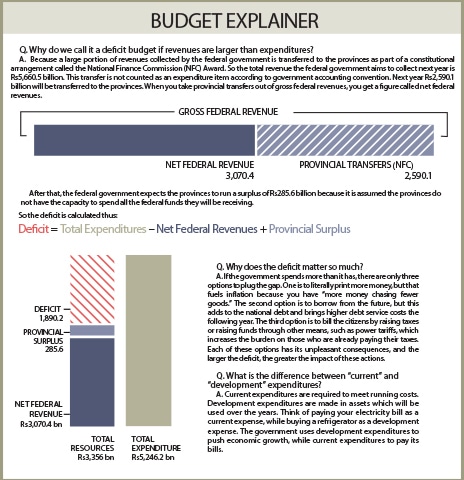
ISLAMABAD: The government on Friday unveiled the highest-ever Public Sector Development Programme (PSDP) of Rs2.04 trillion for the next financial year with major emphasis on infrastructure, energy, railways, water, youth initiatives and the Federally Administered Tribal Areas (Fata).
Out of the total allocation, Rs1.03tr is the federal PSDP, while Rs1.01tr has been earmarked for the provinces.
Find out: Budget 2018-19: Govt slashes PSDP, raises defence spending to Rs1.1 trillion
About 62pc of the PSDP is proposed to be spent on infrastructure, including projects under the China-Pakistan Economic Corridor (CPEC). The PSDP includes Rs100 billion in block allocations. The programme will be funded through foreign loans worth Rs330bn.
Out of the total allocation, Rs1.03tr is the federal PSDP while Rs1.01tr has been earmarked for the provinces
According to the government, priority will be give to Sustainable Development Goals (SDGs), Long Term Plan of the CPEC and Vision 2025 goals, sustained indigenous and inclusive growth, water, energy and food security, private sector-led growth, developing competitive knowledge economy and modernisation of transport infrastructure and greater regional connectivity.
Read more: Budget 2018-19: Standout features and key talking points
Adequate funding has been planned for structural transformation of agriculture, mining and other important sectors.
Focus has been given on youth sports promotion to help regain the country’s pride and promote healthy competition. Therefore, Rs10bn has been earmarked for the Prime Minister Youth Initiative. An amount of Rs45bn each has been allocated for relief and rehabilitation of IDPs and security enhancement and Rs5bn for gas infrastructure development.

The total PSDP, including special areas (AJK, Gilgit-Baltistan and Fata), is Rs930bn.
The Planning Commission has indicated Rs100bn for public private partnership by the National Highway Authority (NHA) that will not be part of budget expenditure.
Thirty-one projects for development of Gwadar are part of the PSDP with an estimated cost of Rs137bn. Another Rs65bn has been earmarked for the water sector, including Rs23bn for Diamer-Bhasha dam.
A major portion of the next year development programme or about 63pc will be for ongoing projects, while ministries and divisions and agencies will be required to process their PC-1s of un-approved projects for approval by Aug 31, 2018 for efficient use of allocated funds. The total number of projects in 2018-19 will be 1,235, including 726 ongoing and 509 new schemes.
The infrastructure sector has been allotted Rs575bn or 62pc of the proposed budget, the social sector has been given Rs135bn or 14pc, science and technology has got Rs12bn or 1pc. Special areas have received Rs72bn or 8pc of the proposed PSDP.
The NHA will get Rs310bn as against Rs319bn in the outgoing fiscal year. Railways will receive Rs39.4bn as against Rs43bn of the outgoing budget.
The energy sector, mainly the National Transmission and Dispatch Company and Pakistan Electric Power Company, has been allotted Rs36.2bn as against outgoing fiscal year’s Rs61bn.
An amount of Rs105bn has been proposed for the finance ministry-administered PSDP. This includes Rs90bn for security enhancement and relief for temporarily displaced persons affected by the Operation Zarb-i-Azb. The nature of this spending falls under the current expenditures, but the government has clubbed it with development, which has diverted significant portion of the budget to non-development activities.
The Ministry of National Health Services, Regulations and Coordination has got Rs25bn as against Rs48.7bn of the outgoing year. The Kashmir Affairs and Gilgit-Baltistan Division got Rs51.2bn as against Rs43.6bn in the outgoing fiscal year.
The development budget of Higher Education Commission has been enhanced to Rs46.7bn from Rs35.7bn of last year.
An amount of Rs5bn has been allocated for PM’s Global SDGs as against Rs30bn in the outgoing fiscal year.
The Interior Division has been given Rs24.2bn as against Rs15.7bn. The Pakistan Atomic Energy Commission has got Rs30.4bn as against Rs15bn. The Ministry of States and Frontier Regions received Rs28.2bn as against Rs26.9bn in the outgoing fiscal year.
Published in Dawn, April 28th, 2018













































